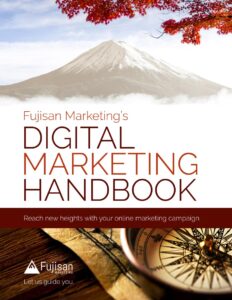A strong pay-per-click (PPC) campaign, sends direct traffic to your website, by paying the search engine or social media channel a small amount each time the ad is clicked. The most common examples of PPC are search engines and social media. PPC advertisements appear along with the natural, non-paid search results, often at the top or in a highly visible space. PPC campaigns are effective because they drive qualified traffic to your site or landing page.
Getting started with pay-per-click advertising sounds simple but PPC campaigns can cost you a fortune if they are not managed correctly. Creating effective PPC campaigns is truly a science and an art form. With the right campaign parameters and a well-written ad, you will see results quickly without blowing your marketing budget.
Getting started with pay-per-click advertising
How does pay-per-click advertising work?
PPC listing space is sold to the highest bidder of specific search terms. These are also called keywords. When someone clicks on your PPC listing they are sent to your website and you are then charged the amount you bid. Luckily, unlike an actual auction, you don’t have to raise a little white paddle each time a keyword you want comes up! When you are setting up your PPC campaign you will need to decide how much you are willing to pay per click on a keyword. The search engine will automatically bid up to the amount you set on your behalf.
How much should I spend?
This is a tough question without knowing the entire scope of your marketing plans and budget! The best advice I can offer is to spend what you can comfortably afford and focus on getting the best ROI on the amount spent per click. You should always pay less than the total profit earned per click. It is okay if directly correlated profits from your PPC campaign aren’t earning you a profit. especially at first. If the traffic is made up of high quality, well-targeted traffic, you are still likely acquiring future customers and creating brand awareness.
How do I choose the right keywords?
Understanding exactly what your customers are searching for is crucial to the success of your campaign. Most people’s instinct when choosing keywords is to bid on broad keywords, like “furniture” or “Shoes.” Everyone is going to be bidding on general terms, driving up the cost per click, and making these broad keywords expensive. It is a more effective PPC strategy to bid on long-tail keyword phrases. You will pay less per click and those who search them are far more likely to buy since they were specific in their search.
If you have not conducted your keyword research, we recommend using the Google Ads Keyword Planner (previously Google AdWords). This free keyword research tool from Google retrieves historical statistics, provides a list of keywords, and predicts how the word search will perform. Keyword Planner also helps you choose competitive bids and budgets for your campaign. This program can even help you generate longer, more specific, pay-per-click keywords by using the keyword multiplier. Not sure what keyword to start with? Google Ads Keyword Planner provides a competitive analysis of your competitions SEO keywords as well.
How do I write effective PPC ad copy?
Writing strong copy for your PPC campaigns is crucial. Search engines have an algorithm that gives a quality score to each ad and keyword combination. The higher your quality score, the lower cost per click (CPC) you will pay, so it’s worth the effort to get your quality score as high as possible.
The best way to approach your PPC ad copy is to focus on writing very specific copy for every keyword, or groups of related keywords, also known as ad groups.
Here are a few things to consider when writing PPC ad copy:
- Search users are more likely to convert when they see search results that contain the actual terms in your actual ad copy.
- The language should support where the search term falls in the buying cycle.
- Target your ad copy language to fill your search users needs.
- Don’t copy your competitors headline.
- Don’t make promises you can’t keep.
- Abide by all copy guidelines laid out by the publisher
How often should I adjust my PPC listings?
You must be prepared to regularly manage your PPC advertising campaigns, or you risk spending a lot for little in return. It is also important to track search traffic trends and how it fluctuates.
I recommend regularly A/B testing your PPC campaigns when you begin in order to identify the best performing copy. I suggest trying 2-3 different versions of each ad. Once you have results, exchange the low performing ads with new variations.
Here are a few things to consider when setting up A/B testing on PPC ad copy:
- Headlines
- Calls to action
- Tone
- Unique selling propositions
- Mobile vs. desktop, Local vs. national
- Location of ad on publishers page
Monitor profit-per-impression over cost-per-click
I like to choose my ads based on profit-per-impression (PPI) because the PPC ad copy that is generating the most revenue is the one that is most valuable to me. If you aren’t familiar with this type of success metric, I highly suggest you read this blog post by PPC guru Brad Geddes. The reasoning for using PPI over CPC is that PPI leverages the benefit of equal impression amounts to see which ad has the best ROI.
Statistical significance
Make sure you are running tests with the appropriate statistical significance. Unless you are looking to become a PPC expert and manage multiple, and/or very large accounts, it is satisfactory to take a sample size and run the test for a set amount of time. I like to use this tool to find the correct sample size for my A/B testing; I also use this free statistical significance calculator to see if my results are actually statistically significant.
Where should I place my PPC ads?
There are many PPC publishers, but for the purpose of this blog, I’ll examine the top three.
Google Ads
According to Comscore, Google commands the vast majority of the search engine market having a whopping 67.3% market share. You will generally pay more per click on Google, but it will also give you access to millions of potential customers actively searching for your product or service.
Bing
Bing lags far behind Google, taking second place when it comes to number of users, but it also generally costs less per click. The lower CPC price creates a great opportunity to test ad copy and keywords before taking them over to Google Ads.
Besides being the largest social network, Facebook has great tools for creating highly targeted PPC campaigns. The price per click is often far less since the users are not generally researching products or services directly on Facebook. Facebook is a bit less qualified, but works well for establishing brand awareness.
As with most digital marketing, it is important to leverage strong keyword research, iterate quickly based on quality metrics, and be on the appropriate platform for you. Use these beginner PPC tips for getting started with pay-per-click advertising to start increasing direct traffic to your site, and converting more search users into customers. You should see results on your campaigns pretty quickly. PPC campaigns can get overwhelming fast and depending on your budget it may be more effective to hire a PPC agency to manage your campaigns.



